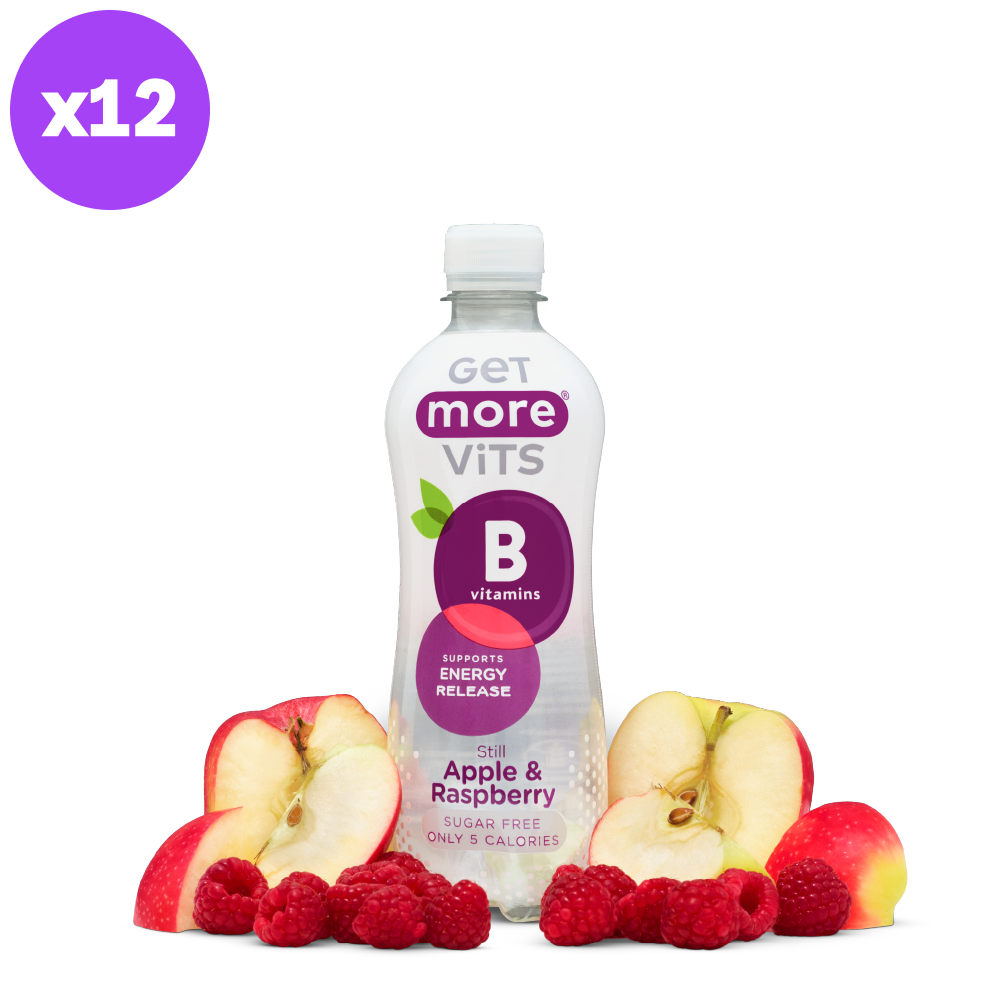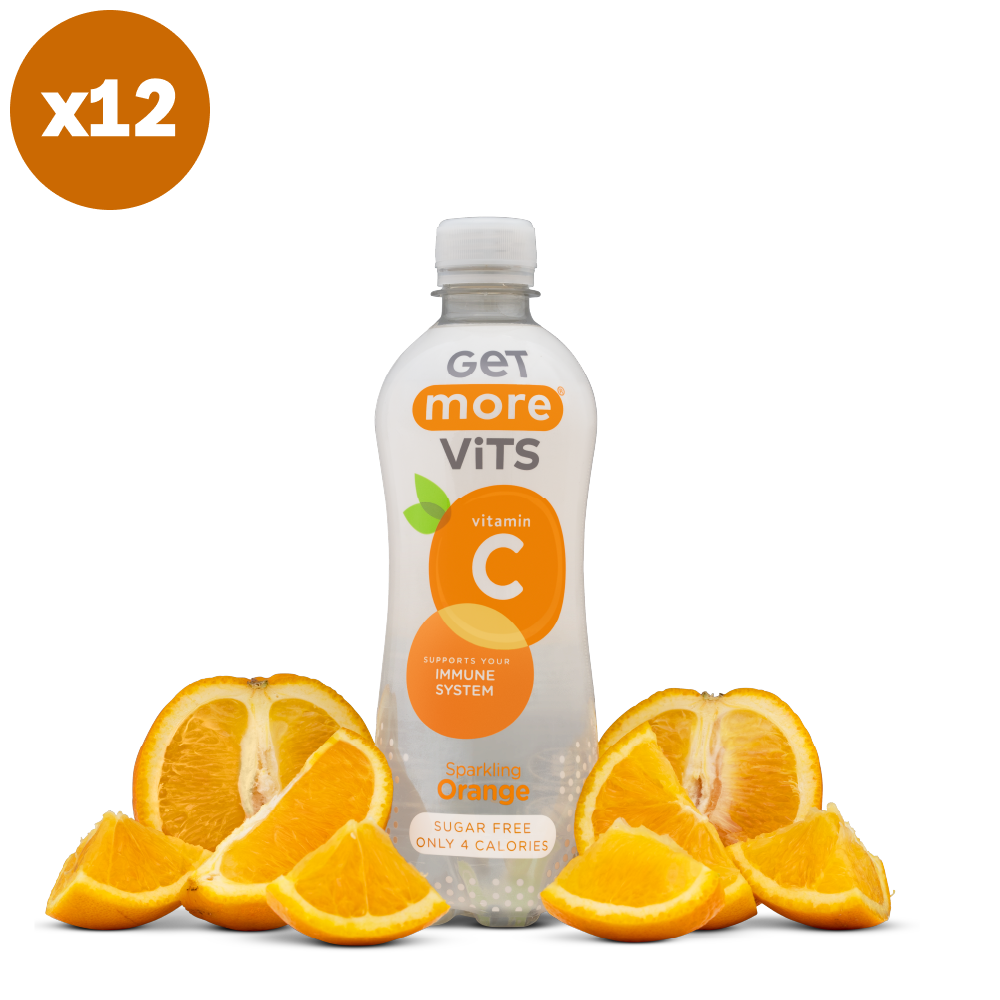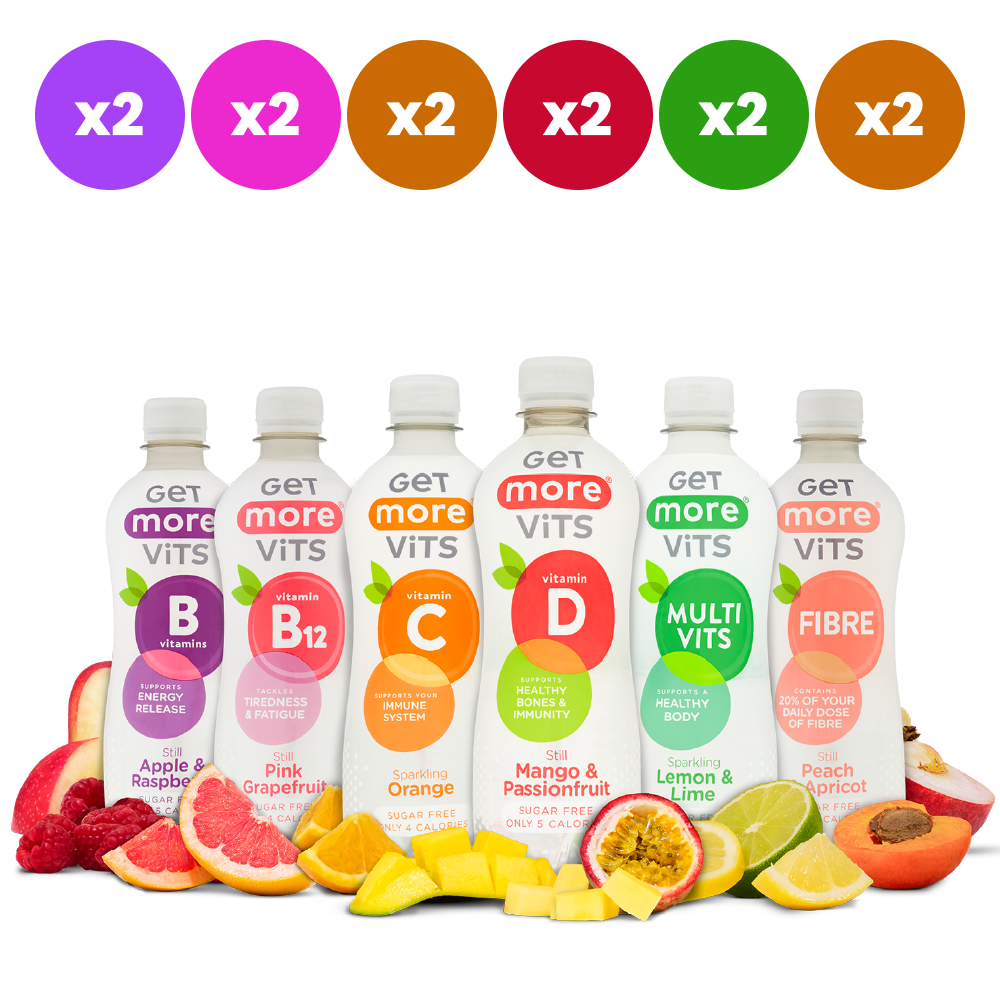When most of us experience acid reflux, we drink a glass of milk, take some antacids, and then usually dismiss the symptoms as a normal side effect of the spicy or greasy meal we have just consumed.
However, if you notice that your symptoms are regularly occurring, then there’s a chance you may have gastroesophageal reflux disease, also known as GERD. Some of the common symptoms of GERD include:
- Heartburn
- Nausea
- Stomach pain
- Trouble swallowing
If this sounds like you, it’s important to take action quickly, as left untreated may lead to long-term problems.
Consulting with your GP should always be the first step. In addition to this, consuming a well-balanced diet that’s rich in specific vitamins is also known to improve symptoms and help manage acid reflux better.
So in this post, we’ll cover 4 vitamins that could improve your symptoms and help you manage acid reflux better. But first, let’s explore what causes acid reflux.
What causes acid reflux?
Acid reflux occurs when the acidic content of the stomach flows up to the oesophagus and into the gullet, moving food into your mouth. You might hear some people refer to acid reflux as ‘’heartburn,’’ but in fact, the heart has nothing to do with it.
The human stomach contains hydrochloric acid that breaks down food and protects your intestinal tract from bacteria. The gastroesophageal sphincter acts as a valve to let food travel into the stomach but prevents it from going back up to the oesophagus. If the valve fails, the contents of your stomach are regurgitated into the oesophagus, which causes the symptoms of acid reflux, such as heartburn, trouble swallowing or that nasty bitter taste in your mouth.

Many of us get acid reflux from time to time. Sometimes it’s caused or worsened by:
- Certain food and drinks - coffee, alcohol, chocolate, spicy and fatty foods
- Being overweight
- Smoking
- Pregnancy
- Stress and anxiety
- Increase in some hormones, including progesterone and oestrogen
- Medicines - such as anti-inflammatory painkillers or ibuprofen
- Hiatus hernia
4 Vitamins to help with acid reflux
B Vitamins
Some research has found that B vitamins, including folate, riboflavin and Vitamin B6 may be linked to a lower risk of complications caused by acid reflux.
One study, in particular, found that greater intakes of folate and vitamin B6 were linked to lower risks of oesophagus cancer and a condition called Barrett’s oesophagus, which are both potential complications of long-term GERD.
The recommended intake of B vitamins
- B9/Folate acid: 200mcg for men and women
- B2/Riboflavin: 1.3mg for men and 1.1mg for women
- B6: 1.4mg a day for men, 1.2mg a day for women
Food and supplements containing B vitamins
High folate foods (B9) include beans, lentils, spinach, avocado, oranges and sweet corn. Riboflavin (B2) is mainly found in meat and fortified foods, but also in some nuts and green veg. Lastly, the richest sources of B6 include fish, beef liver, potatoes, chickpeas and some fortified cereals.
While getting B vits through food should always be a priority, sometimes our diet slips and we’re not always going to get the nutrition our bodies need. So to give you an extra B vitamin boost, we’ve got a daily multivits tablet that contains all 3 B vitamins. Not keen on swallowing tablets? Our Apple & Raspberry B Vitamins drink contains 100% of your daily dose of 6 B vitamins. Available in both still and sparkling - Shop now

Vitamin A and C
Vitamins A and C are powerful antioxidants that have been shown to be effective against GERD symptoms. These antioxidants also help to protect the body from infections and illnesses, which could worsen or trigger acid reflux.
The recommended intake of vitamin A and C
For vitamin A, men aged 19-64 only need 0.7mg daily and women need 0.6mg. The vit A our bodies do not use is stored for future use, which means you’re probably not going to need it every day.
Vit C on the other hand should be more of a priority, because an adult needs significantly more at around 40mg daily.
Food and supplements containing vitamin A and C
You can get plenty of vitamin A and C from eating the right foods. Fruit and veg, including berries, citrus fruits and broccoli packs a real punch when it comes to vit C. For vit A, green, orange and red vegetables all contain beta-carotene, which is converted in the body to vitamin A, so add in plenty of green leafy veg, tomatoes, red peppers and mangos. Why not kill two birds with one stone, throw all of this into a blender and enjoy a vitamin-rich smoothie!
There are always going to be days we don’t eat enough fruit and veg, maybe it’s a cheat day or you’re on holiday… that’s why we suggest taking a vitamin C supplement that reassures your body it’s always getting what it needs. Our Sparkling Orange Vitamin C drinks are a tasty way to get 200% of your daily recommended dose of vitamin C - Shop now

Vitamin E
We get heartburn when the stomach acid leaks into the oesophagus. This leakage can also cause severe inflammation of the oesophagus (Barrett’s oesophagus) and possibly oesophageal cancer. The good news is that vitamin E is another powerful antioxidant known to protect the oesophagus and help prevent these symptoms, according to this study.
The recommended intake of vitamin E
Men only need 4mg daily and 3mg for women. As vitamin E is fat-soluble, it is also stored in the body for future use, so don’t worry too much if you’re eating the right foods (most of the time).
Food and supplements containing vitamin E

You can get enough vit E from plant oils (rapeseed, vegetable oil, sunflower oil), nuts and seed (almonds, peanuts, sunflower seeds) and wheatgerm, which is found in cereal products.
Manage acid reflux better with some simple lifestyle changes
While vitamins may help prevent symptoms, it’s probably not going to be enough if your lifestyle habits are causing the issues. So here are some do’s and don’ts that we think will be beneficial to stop or reduce acid reflux:
Do’s
- Reduce your food portion sizes.
- Add another pillow on your bed to raise your head. When your chest and head are above your waist level, it prevents stomach acid from travelling up towards your throat.
- Focus on improving your diet and fitness if you’re overweight.
- Do more activities that help you relax to reduce stress and anxiety.
Dont’s
- Avoid food and drink that triggers your symptoms.
- Try not to eat within 3 hours before bed.
- Reduce or cut out smoking.
- Reduce alcohol intake.
- Consult with your GP before taking any medicines that could trigger your symptoms.
Summary
There’s nothing nice about acid reflux. The burning sensation in our chest, the trouble swallowing, and the horrible bitter taste is just plain awful.
Most of us experience symptoms of acid reflux time to time, but if you’re noticing it more regularly, then we recommend contacting your GP as soon as possible, because long-term symptoms are no joke.
Once you’ve completed this step, it’s a good idea to focus on how you can adapt your diet and lifestyle to prevent the symptoms or make them less severe next time round.
The vitamins that may help acid reflux are:
- Vitamin B9/Folate acid
- Vitamin B2/Riboflavin
- Vitamin B6
- Vitamin A
- Vitamin C
- Vitamin E




